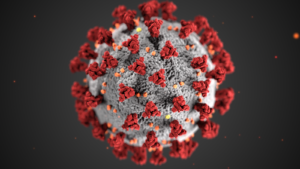
Last week, the World Health Organization listed Mu as a new “variant of interest,” warning that it could possibly evade antibodies which threatens the immunity of COVID-19 vaccinations. In January 2021, Mu was first identified in Colombia and has spread to more than three dozen countries, according to W.H.O. officials.
During the White House COVID-19 press briefing, Dr. Anthony Fauci, the United States top infectious-disease expert, assured the nation that the government is aware of the new variant.
“It is not even close to being dominant,” Fauci said. “The Delta is more than 99% dominant. But remember, even when you have variants that do diminish somewhat the efficacy of a vaccine, the vaccines are still quite effective against variants of that type.”
Fauci said that even though this variant isn’t considered an immediate threat, government officials are still taking it seriously.
There are four current variants of concern which are alpha, beta, gamma and delta. Mu would only be considered a variant of concern if it increases in transmissibility and severity and decreases the effectiveness of public health measures such as vaccines. Variants are added to the VOC list once there is enough clinical data to support its dominance.
According to Johns Hopkins University and Medicine, the United States has had over 40 million confirmed cases and over 600,000 deaths.
Dr. Dyan Hes, the founder of Gramercy Pediatrics in New York City, says the coronavirus will continue to mutate.
“Everyone always thinks that ‘we have the vaccine and we’re done,’” Hes said. “We’re not done. I’m sure Pfizer and Moderna and other drug companies are working to improve their vaccine to cover these variants. We have to be one step ahead and we’ve always been one step behind.”
According to Global Initiative on Sharing All Influenza Data, the largest database of novel coronavirus gnome sequences in the world, the United States has confirmed over 2,000 Mu cases.
Shenyah Ruth is a third-year business administration student who lives in a Southern Scholarship Foundation house with 25 females. SSF is affordable, community-style student housing. She says that learning about the Mu variant is more shocking than scary.
“It’s interesting how quickly COVID-19 is mutating itself,” Ruth said. “Even though we have a vaccine, there are still mutations on the rise.”
Ruth says that SSF is enforcing COVID-19 guidelines for every student house in Tallahassee.
“Masks are required inside of the house especially in public areas like the kitchen and living room,” Ruth said. “My house is the only house with a quarantine room so if someone catches the virus, they have to quarantine in the room between five to 10 days. House guests that aren’t vaccinated must leave the house and find somewhere else to stay until the quarantine is over. Those that are vaccinated have the option to stay but they cannot leave the house unless it’s to get food delivered or fresh air. They even have to miss class.”
Ruth feels fortunate and blessed that she hasn’t contracted coronavirus after being exposed many times.
Elois Hannah is a third-year political science student who recently contracted and fought COVID-19.
“I can honestly say the thought of a new variant that has the potential of being as bad as the Delta variant is terrifying to me,” Hannah said.
Mu became a variant of interest soon after Hannah tested negative for COVID-19, which she says gives her anxiety even though she is fully vaccinated.
“I feel like I was already cautious before contracting the virus, but now I feel even more passionate about others taking precautions as well,” Hannah said. “I make sure I have hand sanitizer in case someone else doesn’t. I’ve even given out masks to classmates that I don’t know if it means that everyone can be safe and protect one another.”
Visit the W.H.O. website for updates on coronavirus and possible VOC’s.